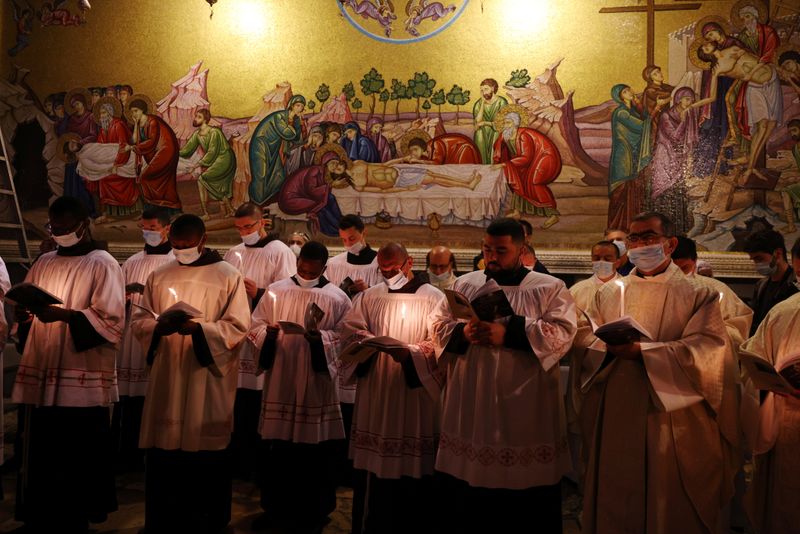By Dan Williams (NYSE:WMB)
JERUSALEM (Reuters) - With Jerusalem emerging from COVID-19 curbs and the faithful flocking there again, Easter Sunday brought a message of renewal from the traditional site of Jesus' death and resurrection.
Deserted a year ago after the pandemic hit, the Church of the Holy Sephulchre was attended by dozens of clergymen and worshippers, a turnout enabled by an Israeli vaccination campaign - the fastest in the world - that has driven down infections.
Archbishop Pierbattista Pizzaballa, the Latin patriarch of Jerusalem, voiced hope in his homily for a post-coronavirus world of greater substance and spirituality.
"(We are) tempted to run backward, to find the bodies we lost, the missed opportunities, the postponed feasts, the life that seemed to escape us," he said.
But, he said: "We should have the courage to be disciples of the impossible, capable of seeing the world with a glance redeemed by the encounter with the Risen One.... Nothing is impossible for those who have faith."
The telling of Jesus' resurrection, he said, is "the proclamation of a Church that knows how to bear witness with conviction and certainty that every death, every pain, every effort, every tear can be transformed into life. And that there is hope. There is always hope."
The Church of the Holy Sepulchre, on the site where Christians believe that Jesus spent his last few hours, is the focus of celebrations of Easter, the most important festival in the Christian calendar.
A festive mood has returned, albeit under some restrictions. Whereas thousands of pilgrims usually walk the Via Dolorosa's 14 Stations of the Cross to mark events leading up to Jesus’ burial, this year's participants numbered in the hundreds and were mostly local.

The Church of the Holy Sepulchre is in the walled Old City of Jerusalem that Israel captured in the 1967 Middle East war.